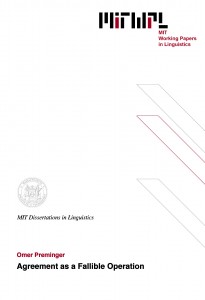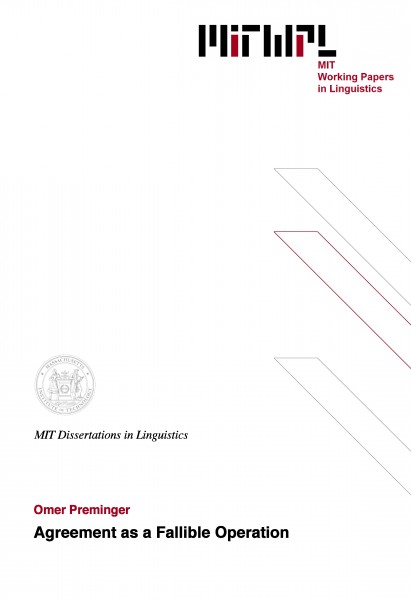Agreement as a Fallible Operation
Omer Preminger, 2011


Save $13.95 (25%) if bought together with Complementation in Chol (Mayan): A Theory of Split Ergativity
In this thesis, I argue that the obligatory nature of agreement in φ-features (henceforth, φ-agreement) cannot be captured by appealing to “derivational time-bombs”—elements of the initial representation that cannot be part of a well-formed, end-of-the-derivation structure, and which are eliminated by the application of φ-agreement itself (as in Chomsky’s 2000, 2001 uninterpretable features approach, for example). Instead, it requires recourse to an operation— one whose invocation is obligatory, but whose successful culmination is not enforced by the grammar.
I then discuss the implications of this conclusion for the analysis of defective intervention by dative nominals. These results lead to a novel view of the interaction of φ-agreement with case, furnishing an argument that both φ-agreement and so-called “morphological case” must be computed within the syntactic component of the grammar.
Finally, I survey other domains where the same operations-based logic proves well-suited to model the empirical state of affairs; these include Object Shift, the Definiteness Effect, and long-distance wh-movement.
The thesis examines data from the Kichean languages of the Mayan family (primarily from Kaqchikel), as well as from Basque, Icelandic, and French.

